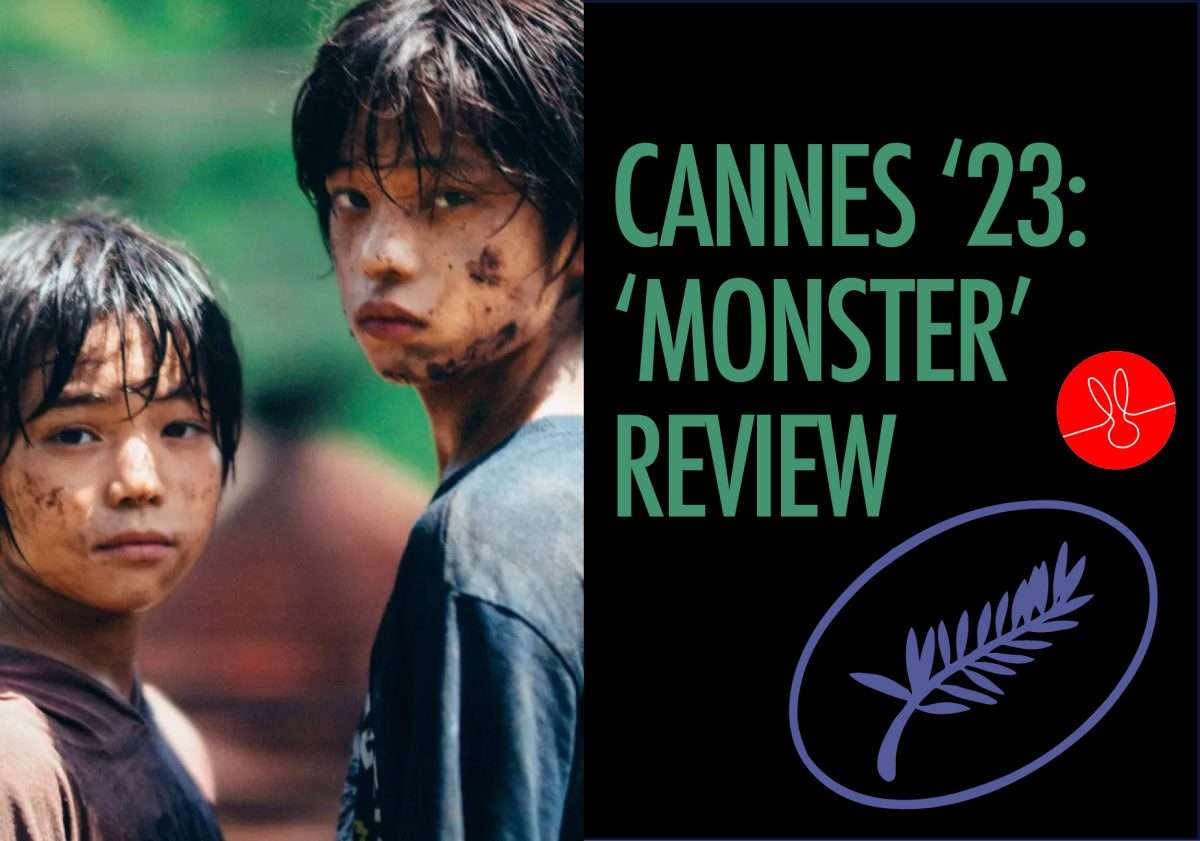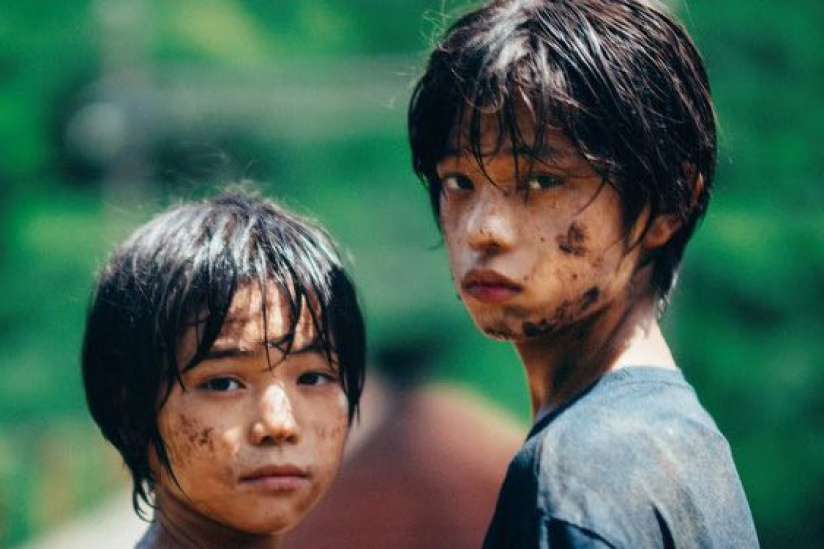
Despite being often-hailed as the successor to Japanese master Yasujirō Ozu, who famously described his filmmaking process as “wanting to just make a tray of good tofu”, Hirokazu Koreeda is a director with an impressively broad palette, even if his big swings don’t always connect. And after a brief hiccup with his Korean-language last feature Broker—which was sweet but didn’t pack the same punch as Shoplifters, Like Father Like Son, Mabarosi, or Nobody Knows, to name a few — his latest, Monster, is a moving step in the right direction.
It’s also another refreshing twist on his norm, seeing the former Palme d’Or winner using a non-linear, Rashomon-inspired structure to convey his usual sensibilities. We open with an image of a building on fire and the sound of ambulance sirens ringing through a city block. The culprit of the arson is one of the mysteries of the film, though it’s implied that schoolboy Minato (Soya Kurokawa), who has recently lost his father, is the one to blame. In the first segment, we follow Minato’s mother, Saori (brilliantly played by Shoplifter’s actor Sakura Andô) storming her son’s school after he claims that a teacher physically abused him in the classroom. The teacher in question, Hori, seems remorseless, and the school’s principal completely unsympathetic, having herself suffered a major grievance in her life. As the film goes on, the story of the fire and the interaction between Hori and Minato is retold from the perspective of different characters, slowly approaching a clearer understanding of the truth.
Koreeda operates best as an alchemist of emotion, usually created from the sometimes tough moral conundrums faced by his characters and the little moments of humanity—the hopes, the tragedies, the bittersweet—that are inked into the fabric of his work. His greatest tool is his ability to see into the souls of his characters, and to understand them, even when they act on selfish impulses. On paper, the Rashomon-esque template is perfect for a filmmaker like Koreeda, with different characters carrying their own biases, traumas and versions of the truth, and he deploys the format cleverly to tease, mislead, and unmask. It mostly works, although unlike Koreeda’s previous outings, which quietly navigate the complex emotions of his characters, Monster’s structure can naturally make the film feel a slight bit unsubtle in its execution, and the characters sometimes hard to connect with. Perhaps this is the point, but it can frustrate all the same.
The two youngest cast members at the centre of this drama thankfully don’t suffer too much from this hindrance, and Hinata Hiragi and Soya Kurokawa as classmates Minato and Eri are the film’s brightest stars. It’s no wonder, then, that when Koreeda finally shifts his attention to Minato in the film’s final third Monster is able to step out of the shadows of the filmmaker’s greatest hits, bringing forth a tender love story that takes a lot of what he does best and frames it through a new lens. At this point in the film, many people have been hurt and a violent storm brews over the city, but it becomes clear in Monster’s last few moments that sometimes a tempest is necessary to put out fires and clear the skies once again. It might not stand with the best of his work, but make no mistake, at its core Monster is still imbued with the DNA of one of contemporary cinema’s greatest humanists, and the end result is an empathetic tale of friendship and grief that wades through muddy waters to uncover a simple, innocent truth.






